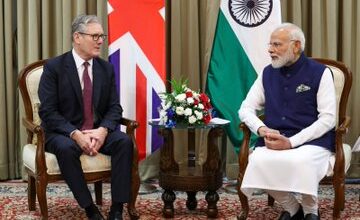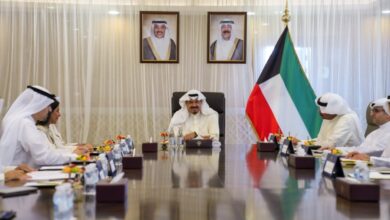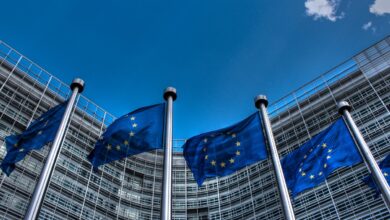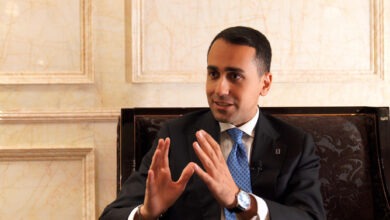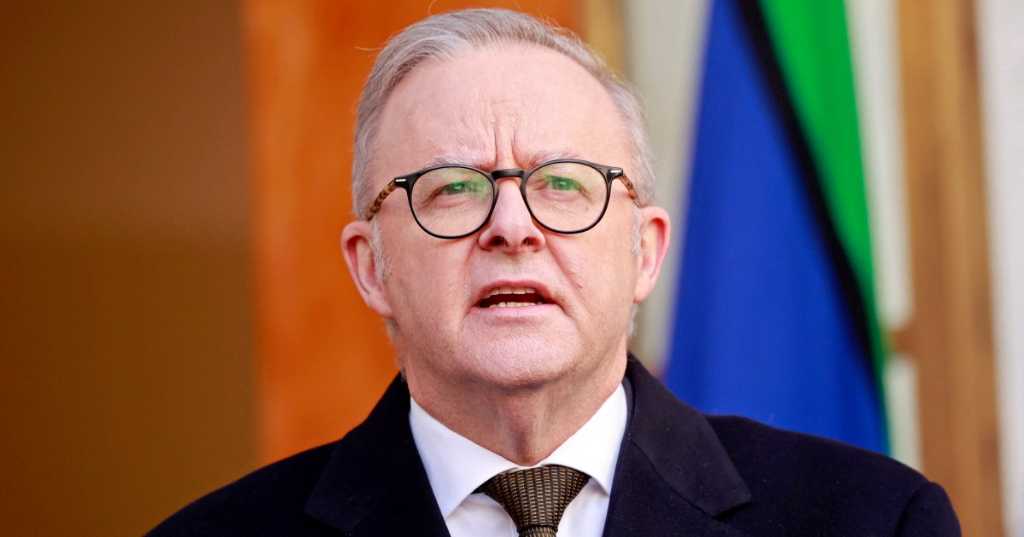
Australian Prime Minister Anthony Albanese announced on Monday that Australia will formally recognize a Palestinian state during the 80th session of the United Nations General Assembly in September, joining a growing number of Western nations — including France, Britain, and Canada — in increasing diplomatic pressure on Israel.
In a statement, Albanese said the move aims to support global efforts toward a two-state solution, secure a ceasefire in Gaza, and ensure the release of hostages, according to news reports.
The decision, made following a cabinet meeting, is contingent on assurances from the Palestinian Authority, including the exclusion of Hamas from any future Palestinian state.
“A two-state solution is humanity’s best hope to break the cycle of violence in the Middle East and to end the conflict, suffering, and hunger in Gaza,” Albanese said during a press conference in Canberra.
He added that he had spoken with Israeli Prime Minister Benjamin Netanyahu last Thursday, stressing that only a political solution — not a military one — could resolve the conflict.
Israeli officials swiftly condemned the decision. Israeli Ambassador to Australia Amir Maimon told ABC the recognition would not help end the war in Gaza, calling it “unilateral recognition” that Israel rejects.
President Isaac Herzog criticized the move as rewarding Hamas for its October 7, 2023, attack, echoing the Israeli government’s stance against such recognitions.
The announcement comes just a week after hundreds of thousands of Australians marched across the Sydney Harbor Bridge to protest Israel’s war in Gaza.
Speaking to ABC a day later, Foreign Minister Penny Wong warned there was “a risk there will be no Palestine left to recognize,” adding that recognition was “a matter of when, not if.”
Liberal Party leader Sussan Ley sharply criticized Albanese’s decision to recognize the State of Palestine, saying it undermines efforts to free Israeli hostages still held in Gaza and leaves Hamas in power.
“Despite his words today, the reality is Albanese has committed Australia to recognizing Palestine while hostages remain in tunnels under Gaza and with Hamas still in control of the population of Gaza.
“Nothing he has said today changes that fact,” Ley said in a statement.
She argued that recognizing a Palestinian state before the release of hostages and the defeat of Hamas “risks delivering Hamas one of its strategic objectives of the horrific terrorism of October 7.”
The Australian Greens welcomed the recognition but called it insufficient in addressing public demands for concrete measures against Israel.
“Millions of Australians have taken to the streets, including 300,000 last weekend in Sydney alone, calling for sanctions and an end to the arms trade with Israel.
The Albanese Government is still ignoring this call,” Senator David Shoebridge, the party’s foreign affairs spokesperson, said.
The Australian Palestine Advocacy Network (APAN) also dismissed the announcement as a “political fig leaf” that allows Israel’s “genocide and apartheid” to continue, while distracting from Australia’s role in “Israeli war crimes via ongoing weapons and components trade.”
APAN stressed that Palestinian rights “are not a gift to be granted by Western states” nor dependent on the approval of “colonial oppressors.”
Albanese said Australia’s decision rests on “detailed and significant commitments” from the Palestinian Authority (PA), including recognizing Israel’s right to exist in peace, committing to demilitarization, and holding general elections.
Meanwhile, New Zealand Foreign Minister Winston Peters announced that his country’s cabinet will decide on recognition of Palestine in September. Peters said New Zealand maintains an independent foreign policy and will weigh the decision carefully, noting there are “strongly held views” across government, parliament, and society.
Follow The Times Kuwait on X, Instagram and Facebook for the latest news updates








